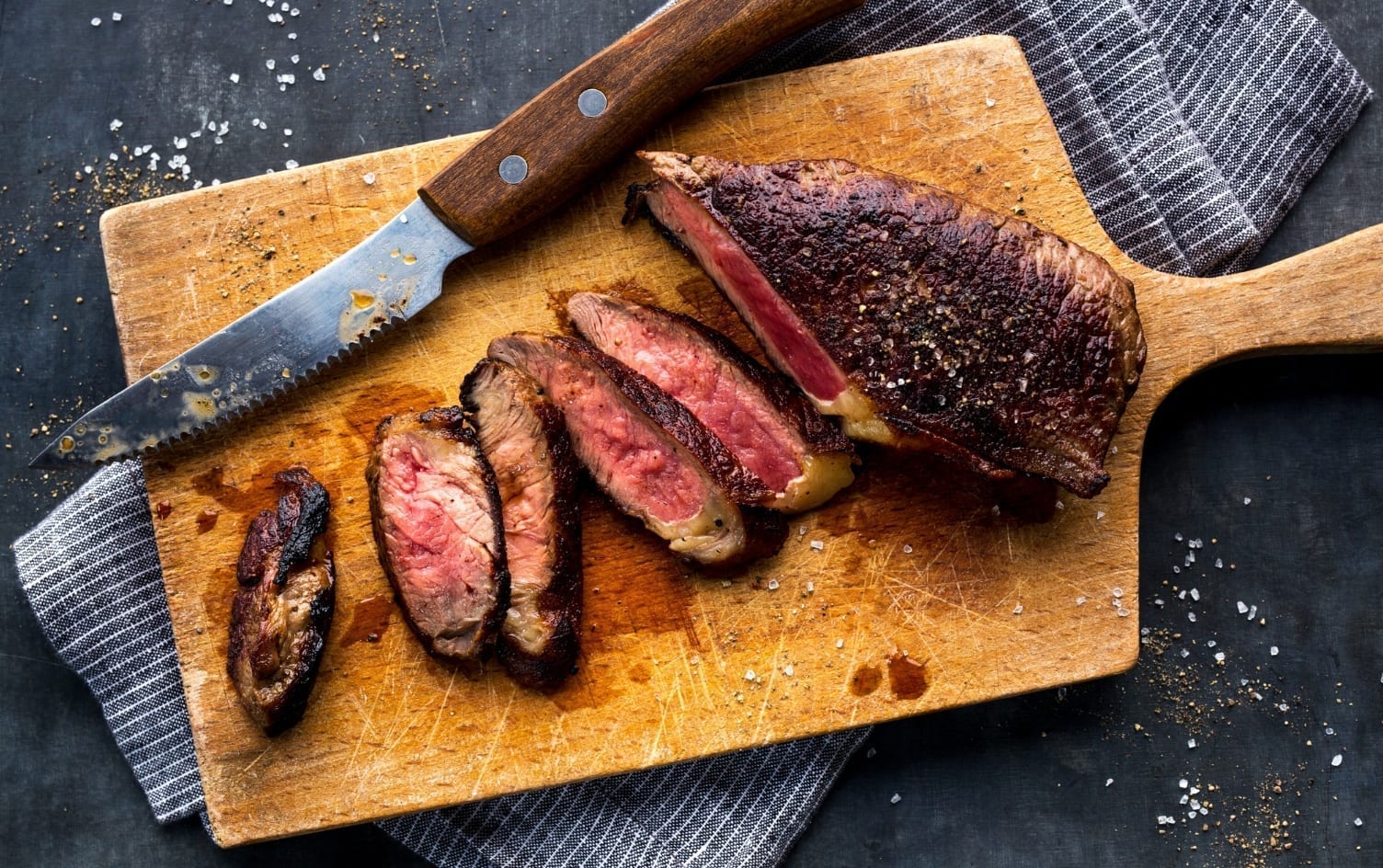More data is showing that compared to a plant-based diet, red meat-eaters have an increased risk of heart disease and premature death. A high intake of red meat has been linked to increased risk of Type 2 diabetes, heart disease and certain cancers. Now, new research has found a connection between eating red meat and an increased risk of premature death, providing even more reason to replace a T-bone with tofu.
THE LATEST RESEARCH
The latest findings, published in The BMJ, followed more than 81,000 adults ages of 30–75 who did not have a diagnosis of cancer or cardiovascular disease at the start of the eight-year study.
While high intake of all red meat increased the risk of dying during the study period, increasing intake of processed red meat such as hot dogs, sausages and bacon, increased the risk of death by 13%. Replacing one serving of red meat per day with whole grains, eggs, fish and other sources of protein helped decrease the risk of death by 17% over the eight-year period.
WHAT MAKES RED MEAT UNHEALTHY?
The combination of saturated fat and cholesterol in red meat has long been blamed as a contributor to increased risk of health issues, but Dr. Stanley Hazen, section head of preventive cardiology and rehabilitation at the Cleveland Clinic found another culprit.
Red meat increases levels of trimethylamine N-oxide or TMAO, a substance produced by gut bacteria during digestion. It appears that higher levels of TMAO can lead to clogged arteries and boost the risk of developing blood clots, raising the risk of heart attack and stroke.
Hazen, who published the original findings in the journal Nature, calls TMAO, “the missing link” in our understanding of how red meat contributes to heart disease risk.
“Heart disease is the number 1 killer in the U.S.,” he says. “We’ve become good at keeping people alive after a heart attack but we haven’t halted the development and progression of the disease.”
While too much red meat could spike cholesterol levels, beef, pork and lamb are also good sources of nutrients such as protein, vitamin B12 and iron, which might provide some protection against heart disease.
IS A PLANT-BASED DIET THE SOLUTION?
Compared to meat eaters, vegetarians had a 22% lower risk of coronary heart disease but a 20% higher risk of stroke, according to a 2019 study.
Lead author Tammy Tong, PhD, a nutritional epidemiologist at Oxford University, believes vegetarians often have lower BMI, cholesterol, blood pressure and diabetes rates than meat eaters, which protects their hearts.
When it comes to higher risks of stroke, Tong admits the mechanism is unclear. Low levels of vitamin B12, which are more common in vegetarians and vegans, could be to blame, but she adds, “There is currently only limited evidence, and more research is needed.”
Before your next meal, consider this: The American Heart Association recommends eating fewer than 6 ounces of cooked lean meat per day for a maximum of five days per week.
Hazen acknowledges that diet is a personal choice and while some may choose to adopt vegetarian or vegan diets, others might choose meatless meals once or twice per week. The important thing to remember, he says, is “the more portions [of red meat] per week, the higher the lifetime risk [of heart disease]. Knowledge is the first step on the path toward understanding what one can do to lower the risks.”




